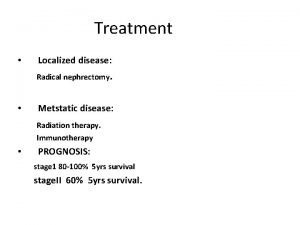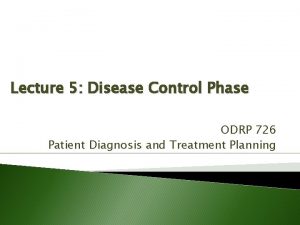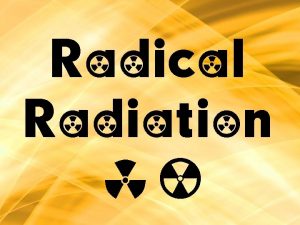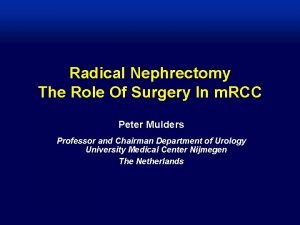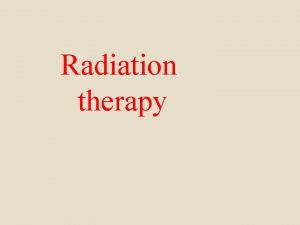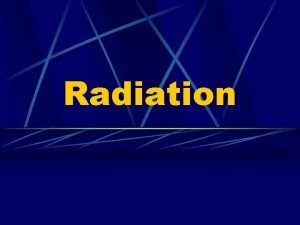Treatment Localized disease Radical nephrectomy Metstatic disease Radiation












- Slides: 12

Treatment • Localized disease: Radical nephrectomy. • Metstatic disease: Radiation therapy. Immunotherapy • PROGNOSIS: stage 1 80 -100% 5 yrs survival stage. II 60% 5 yrs survival.

Urethelial tumor of the renal pelvis • 4% of urethelial tumors. Male-Female ratio 4 -1. High incidence of multicentric. • Etiology: Risk factor: smoking industrial dye, solvent, analgesic such as phenacetin, aspirin, caffeine, acetaminophen. . Pathology: Majority are Transitional cell carcinoma. Rarely squamous cell carcinoma, or adenocarcinoma.

Pathology of TCC. Metastasis: Regional LNs, Lung, bone. Staging: TNM: Ta. Tis: confined to mucosa. T 1 Invasion of lamina propria. T 2 Invasion of muscularis. T 3 a Invasion of deep muscles. T 3 b Extension into fat or renal parechyma. T 4 Spread to adjacent organs. N+ LNs Metastasis. M+ Distant metastasis.

Clinical Findings: • Symptoms&Signs: Gross Hematuria. Flank pain. Flank mass(Hydronephrosis). Weight loss anorexia. • Laboratory: Hematuria. Urine cytology(voided urine or ureteric catheter).

X-ray • I. V. U.

Retrograde Pyelogram:

Ureteropyeloscopy: Ultrasonography: C. T.

Treatment: Localized Tumor: -Nephroureterectomy. -Conservative : open or endoscopic excision + instillation of immuno-0 r chemotherapeutic Single kidney. Bilateral tumors. Metastatic Tumor: Chemotherapy.

Adrenal gland: Benign Tumors: -Adenoma. Malignant: - Neuroblastoma.

Neuroblastoma of Adrenal Gland -Origin: Neural crest. -Age: 1 st 2 ½ yrs. -Poor prognosis. -Hereditary. -Rarely bilateral. Clinical Findings: Symptoms: Abdominal mass (parent). Symptoms related to metastases (failure to thrive, Fever, malaise, bone pain, constipation, diarrhea).

Signs: -Palpable, visible abdominal mass. -In metastatic patient: enlarged nodular liver, mass in bone, ocular protrusion. - Hypertension. Laboratory Findings: -Anemia. -Increase level of serum epinephrine , nor epinephrine, and urinary VMA. X-ray Findings: U. S, I. V. P, CT, Angiography.

Treatment: Localized Tumor: -Tumor Excision followed by radiotherapy to the tumor bed -Very large tumor : Radiotherapy followed by excision. Metastatic Tumor: Chemotherapy.
 Metstatic
Metstatic What is a mixed radical
What is a mixed radical Unit 6 radical functions homework 4 rational exponents
Unit 6 radical functions homework 4 rational exponents Radical section
Radical section Prion disease symptoms
Prion disease symptoms Disease control phase
Disease control phase Shahzad ahmad md
Shahzad ahmad md Maple syrup urine disease treatment
Maple syrup urine disease treatment Heart disease symptoms
Heart disease symptoms Reliability centered maintenance
Reliability centered maintenance How to tell if a lone pair is delocalized
How to tell if a lone pair is delocalized Localized convective lifting
Localized convective lifting Section 18.2 cloud formation
Section 18.2 cloud formation
